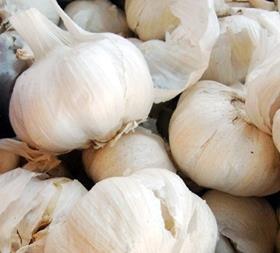
Garlic production is on the verge of a revolution thanks to groundbreaking research taking place in Israel.
Scientists from the Agricultural Research Organization, the Volcani Center and the Hebrew University of Jerusalem have reversed 5,000 years of evolution and developed garlic from ‘true seed’, opening up myriad opportunities for growers to produce more hardy, better-yielding varieties than the clones available today.
Currently, no commercial garlic cultivar develops fertile flowers or produces seeds – a situation that hasn’t changed in millennia. Therefore, worldwide production depends exclusively on vegetative propagation, with garlic sterility bringing a plethora of issues from poor pest resistance to low yields and storability.
Fertility restoration and ‘true seed’ production have long been attempted by scientists, and now it looks as if the holy grail of commercial garlic production could be just around the corner. Research leader Professor Rina Kamenetsky, of the Volcani Center, tells FPJ that the team has managed to restore fertility to garlic, leading to true seed production, a situation which opens the door to future new varietal development, cross hybridisation and a world of breeding and selection possibilities.
Growers stand to gain from multiple benefits, not least the development of better varieties, adapted to specific environmental or growing conditions; virus and disease-free plant material originated from seeds; and the opportunity for seed production similar to onions or leeks – that’s to say no need for large storage facilities, sorting and clove planting.
It’s not just good news for growers either, with consumers set to benefit from more desirable traits, including better colour, pungency, dry weight, and a higher content of health compounds than is currently possible.
It seems like the stuff of science fiction, but could this become a reality for commercial production in the near future? Kamenetsky says it can: “First hybrids are under evaluation now, and will be available for semi-commercial production in three to four years,” she explains. “We estimate that mass production of garlic from seed will be feasible in seven to eight years. In addition, the outstanding genotypes for classic vegetative propagation are already available, and our current aim is their fast propagation and evaluation in different regions.”
UK growers will hope the research can be applied in this country. Development work so far has focused on Israel, but in order to test a wide range of climatic conditions first trials have now been established in locations from Mexico and California to Nevada and Canada, and Kamenetsky says the UK could host future trials.
Certainly, the possibilities have got growers excited. Colin Boswell, of The Garlic Farm, says the development would be “a great tool for cleaning up the garlic crop” and could have a big impact at a time when consumers are increasingly interested in high-quality garlic.
It’s early days, but the transformative effect the breakthrough could have on the global garlic production industry cannot be understated.



